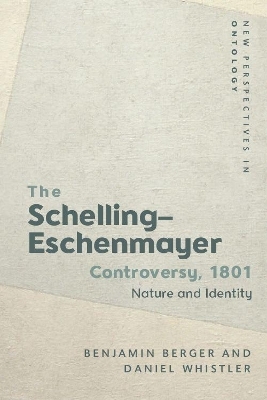
The 1801 Schelling-Eschenmayer Controversy
Edinburgh University Press (Verlag)
978-1-4744-3439-3 (ISBN)
During the first decade of the 19th century, F. W. J. Schelling was involved in 3 distinct controversies with one of his most perceptive and provocative critics, A. K. A. Eschenmayer. The first of these controversies took place in 1801 and focused on the philosophy of nature. Now, Berger and Whistler provide a ground-breaking account of this moment in the history of philosophy. They argue that key Schellingian concepts, such as identity, potency and abstraction, were first forged in his early debate with Eschenmayer. Through a series of translations and commentaries, they show that the 1801 controversy is an essential resource for understanding Schelling's thought, the philosophy of nature and the origins of absolute idealism.
Benjamin Berger is Visiting Assistant Professor of Philosophy at Kent State University. He is editor of a special issue of Pli, on Schelling: Powers of the Idea, 2014. Daniel Whistler is Reader in Modern European Philosophy at Royal Holloway, University of London. He is author of Schelling's Theory of Symbolic Language: Forming the System of Identity (Oxford University Press, 2013) and has edited, among other volumes, The Edinburgh Critical History of Nineteenth-Century Theology (Edinburgh University Press, 2017). He currently leads the production of a two-volume edition, Hegel and Schelling in Early Nineteenth-Century France, for Springer's International Archives of the History of Ideas series and is co-editor of the forthcoming, Oxford Handbook of Modern French Philosophy.
| Erscheinungsdatum | 29.06.2020 |
|---|---|
| Reihe/Serie | New Perspectives in Ontology |
| Verlagsort | Edinburgh |
| Sprache | englisch |
| Maße | 156 x 234 mm |
| Themenwelt | Geisteswissenschaften ► Philosophie ► Metaphysik / Ontologie |
| ISBN-10 | 1-4744-3439-8 / 1474434398 |
| ISBN-13 | 978-1-4744-3439-3 / 9781474434393 |
| Zustand | Neuware |
| Haben Sie eine Frage zum Produkt? |
aus dem Bereich


